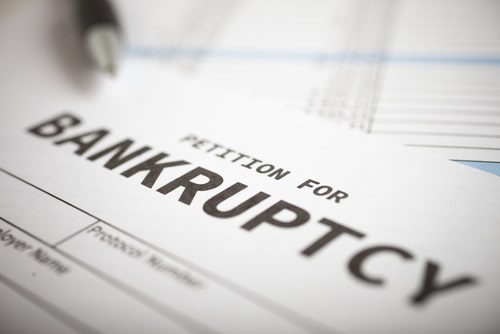Bankruptcy Fraud: Pitfalls to Avoid During Your Case
 A bankruptcy filing can offer a new financial beginning to individuals overwhelmed by debt. Yet, the process can be complex, and inadvertent errors can have repercussions, such as accusations of bankruptcy fraud. A Texas lawyer can help you learn about the common pitfalls to avoid during your bankruptcy case.
A bankruptcy filing can offer a new financial beginning to individuals overwhelmed by debt. Yet, the process can be complex, and inadvertent errors can have repercussions, such as accusations of bankruptcy fraud. A Texas lawyer can help you learn about the common pitfalls to avoid during your bankruptcy case.
What Exactly is Bankruptcy Fraud?
Bankruptcy fraud is a federal crime that occurs when an individual knowingly and fraudulently conceals assets, makes false statements, or files incomplete forms in connection with a bankruptcy case. This can include hiding property, lying about income or debts, or intentionally filing inaccurate documents with the court. It is important to understand that bankruptcy fraud can be committed by the person filing for bankruptcy and by creditors, attorneys, or other individuals involved in the case. Committing bankruptcy fraud can result in severe penalties, including fines, restitution, and even imprisonment.
Common Mistakes to Avoid
To avoid allegations of bankruptcy fraud, it is important to be aware of common pitfalls such as some of the following:
- Concealing assets: Disclose all your assets, including real estate, vehicles, bank accounts, and valuable possessions. Failing to do so can be considered fraudulent.
- Undervaluing assets: Provide accurate valuations for your assets. Deliberately undervaluing property to keep it out of the bankruptcy estate is a form of fraud.
- Transferring assets before filing: Avoid transferring assets to friends or family members before filing for bankruptcy. This can be seen as an attempt to hide assets from creditors.
- Incurring new debt before filing: Do not accumulate substantial new debt, such as luxurious purchases or cash advances, in the months leading up to your bankruptcy filing. This can be considered fraud.
- Falsifying information: Always provide truthful and accurate information in your bankruptcy petition and schedules. Lying under oath is a serious offense.
The Benefits of Having a Bankruptcy Lawyer
Hiring a bankruptcy lawyer in Texas can help you understand what to do through the process and avoid potential issues. Here are some ways an attorney can assist you:
- A bankruptcy lawyer will explain your options, help you understand the implications of each choice, and guide you through the entire process.
- Your attorney will ensure that your bankruptcy petition and schedules are complete, accurate, and filed correctly, minimizing the risk of fraud allegations.
- A lawyer can help you protect your assets to the fullest extent allowed under Texas law, such as claiming exemptions for your home, vehicle, and personal property.
- If any issues arise during your bankruptcy case, your attorney will represent your interests in court and work to resolve matters in your favor.
- With a bankruptcy lawyer handling your case, you can have peace of mind knowing that you have an experienced professional on your side, helping you avoid costly mistakes and achieve a successful outcome.
Protect Yourself and Your Financial Future
Declaring bankruptcy is a significant choice that demands thoughtful deliberation and strategy. You can protect yourself by recognizing the typical traps that may result in accusations of bankruptcy fraud and collaborating with an attorney.
It is critical to maintain honesty and transparency during the bankruptcy process. Ensure you disclose all pertinent information, submit precise documentation, and adhere to your attorney’s advice. This approach will help you steer clear of the serious repercussions associated with bankruptcy fraud and fully embrace the new beginning that bankruptcy provides.
Contact a Boerne, TX Bankruptcy Attorney
If you are considering filing for bankruptcy, having a New Braunfels, TX bankruptcy lawyer on your side can make all the difference. Call Law Offices of Chance M. McGhee at 210-342-3400 to start with a free consultation and see the potential you have for starting over financially.






